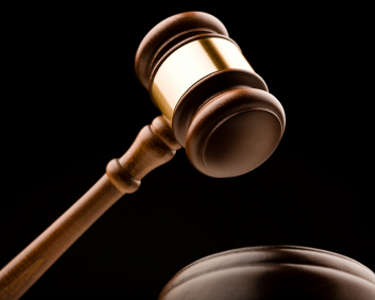Judge Rules National Day of Prayer Unconstitutional
 A Wisconsin federal judge has ruled that the National Day of Prayer is unconstitutional.
A Wisconsin federal judge has ruled that the National Day of Prayer is unconstitutional.
In her 66-page opinion Thursday, U.S. District Court District Judge Barbara B. Crabb wrote that the prayer day violates the separation of church and state. More than merely acknowledging religion, she said the day’s purpose “is to encourage all citizens to engage in prayer, an inherently religious exercise that serves no secular function in this context.”
The Wisconsin-based Freedom From Religion Foundation filed the lawsuit in October 2008, claiming its members experienced “concrete injury” because of a 1988 federal law requiring the president to issue a proclamation each year declaring the first Thursday in May the National Day of Prayer.
The group argued that the prayer day makes them feel excluded as nonreligious persons, and that it creates the perception that the government favors Americans who pray.
The court noted that President Obama, who observed last year’s National Day of Prayer privately but issued a proclamation calling Americans to pray, has said the statute is simply an “acknowledgment of the role of religion in American life” and is no different from government practices that courts have upheld.
Crabb disagreed. “Recognizing the importance of prayer to many people does not mean that the government may enact a statute in support of it, any more than the government may encourage citizens to fast during the month of Ramadan, attend a synagogue, purify themselves in a sweat lodge or practice rune magic,” she wrote. “In fact, it is because the nature of prayer is so personal and can have such a powerful effect on a community that the government may not use its authority to try to influence an individual’s decision whether and when to pray.”
Attorneys with the Alliance Defense Fund (ADF) are urging President Obama to appeal the decision. The group launched a grassroots effort called Save the National Day of Prayer that has more than 170,000 supporters on Facebook.
“The National Day of Prayer provides an opportunity for all Americans to pray voluntarily according to their own faith–and does not promote any particular religion or form of religious observance,” said ADF Senior Legal Counsel Joel Oster. “It does not violate the Establishment Clause of the First Amendment, and this decision should be appealed.”
The American Center for Law and Justice (ACLJ) plans to file a brief challenging the ruling. The group previously filed an amicus brief defending the National Day of Prayer on behalf of 31 members of Congress, including Rep. J. Randy Forbes, chairman of the Congressional Prayer Caucus.
“If the appeals court fails to reverse this decision, we’re confident the Supreme Court will hear the case and ultimately determine that such proclamations and observances like the National Day of Prayer not only reflect our nation’s rich history, but are indeed consistent with the Establishment Clause of the First Amendment,” said Jay Sekulow, chief counsel of the ACLJ..
The suit originally named as a defendant Shirley Dobson, chair of the National Day of Prayer Task Force. In March, Crabb dismissed Dobson from the complaint, saying the plaintiffs lacked standing to sue because they failed to show that she injured them.
The annual prayer event was created in 1952 by a joint resolution of the United States Congress, and signed into law by President Harry S. Truman. In 1988, Congress set the first Thursday in May as the day for presidents to issue proclamations asking Americans to pray.
The court order does not demand that this year’s National Day of Prayer, scheduled for May 6, be cancelled. It also does not stop future presidential proclamations from being issued and will not go into effect unless the decision still stands after all appeals are exhausted.














































